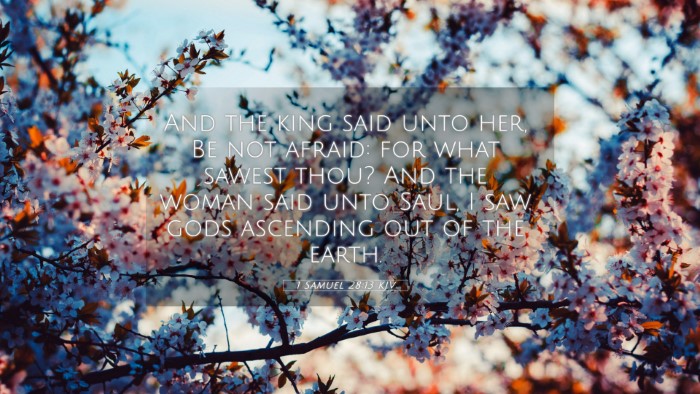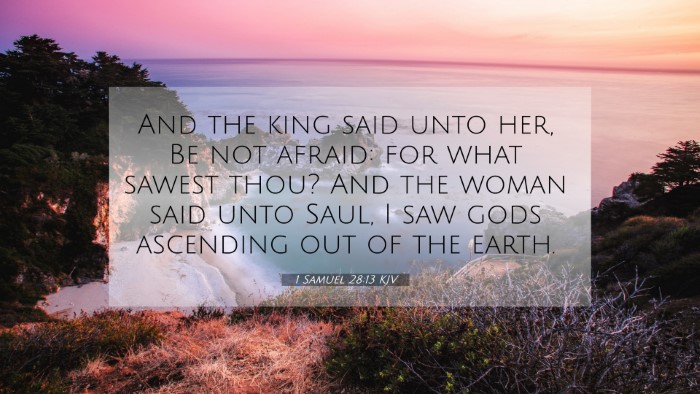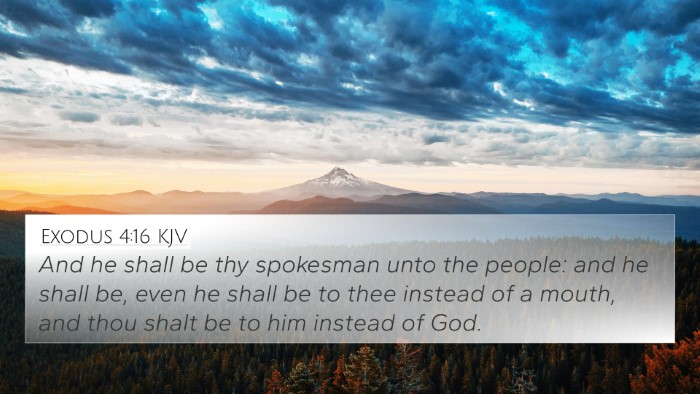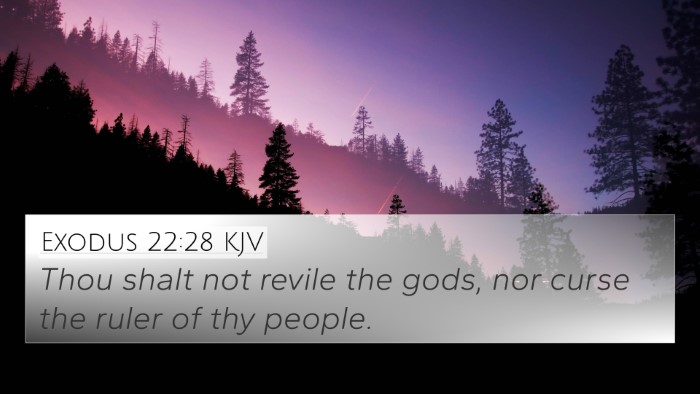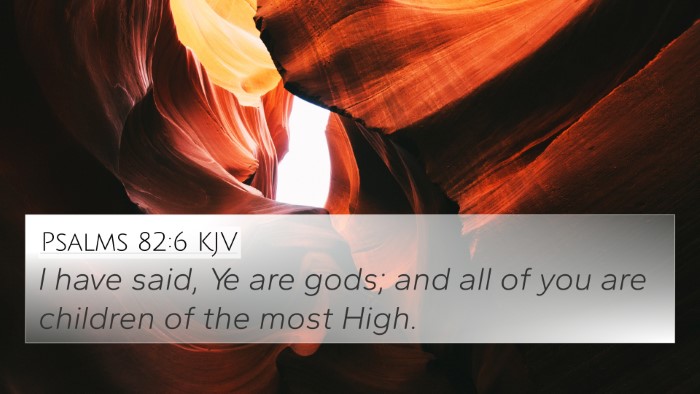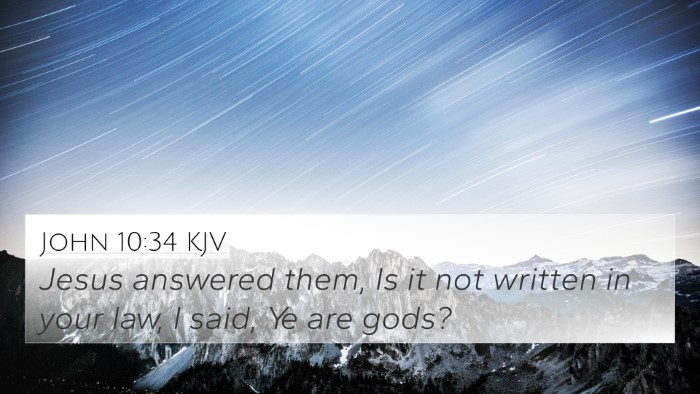Understanding 1 Samuel 28:13
1 Samuel 28:13 states: "And the king said unto her, Be not afraid: for what sawest thou? And the woman said unto Saul, I saw gods ascending out of the earth."
Summary of 1 Samuel 28:13
This verse captures a pivotal moment in the narrative of King Saul as he seeks counsel from a medium at Endor. Saul, in desperation, turns to witchcraft, which he had previously condemned. This act illuminates the depth of Saul's fear and confusion as he attempts to navigate his estranged relationship with God.
Commentary Insights
Matthew Henry's Commentary
Henry emphasizes the gravity of Saul's situation; his fear led him to forsake God's guidance. This encounter with the medium reflects a profound spiritual decline, highlighting Saul's ultimate separation from God's favor. Henry argues that the 'gods' seen by the woman represent failed attempts to find divinity in the absence of authentic communion with the Lord.
Albert Barnes' Notes
Barnes notes the ironic twist where Saul, once a king who opposed witchcraft, succumbs to its lure. This reversal signifies a tragic downfall. He also highlights that what the woman perceives may not be true spirits but a reflection of her own fears and imaginations driven by the context of their clandestine meeting.
Adam Clarke's Commentary
Clarke delves into the symbolic implications of 'gods' ascending from the earth, suggesting that it represents a profound misunderstanding of the spiritual realm. He posits that Saul’s encounter is a desperate plea for guidance but ultimately reveals the futility of seeking answers outside of God’s ordained means. This underscores the theme of divine abandonment that permeates Saul's narrative.
Cross-Referencing Insights
To gain a deeper understanding of 1 Samuel 28:13, we can explore several Bible cross-references:
- Leviticus 19:31: "Regard not them that have familiar spirits, neither seek after wizards, to be defiled by them: I am the Lord your God." - This verse reflects God’s prohibition against consulting mediums.
- 1 Chronicles 10:13-14: "So Saul died for his unfaithfulness which he had committed against the Lord..." - This highlights the consequences of Saul's actions in seeking guidance outside of God.
- Deuteronomy 18:10-12: "There shall not be found among you anyone that maketh his son or his daughter to pass through the fire, or that useth divination, or an observer of times..." - This passage reinforces the danger of mystical practices frowned upon by God.
- Isaiah 8:19-20: "And when they shall say unto you, Seek unto them that have familiar spirits, and unto wizards that peep, and that mutter: should not a people seek unto their God?" - This suggests the moral imperative to seek God rather than the occult.
- 1 Samuel 15:23: "For rebellion is as the sin of witchcraft..." - This connects direct disobedience to God with the practices Saul engaged in.
- Psalm 106:28: "They joined themselves also unto Baal-peor, and ate the sacrifices of the dead." - This illustrates the dangers of turning to false gods and practices contrary to God's commands.
- Romans 8:31-39: "What shall we then say to these things? If God be for us, who can be against us?" - This underscores the importance of trusting God in all things rather than resorting to pagan practices.
Spiritual Takeaways
This verse serves as a reminder of the importance of maintaining one’s relationship with God and seeking His guidance above all else. Saul's tragic end is a powerful warning against straying from divine wisdom to find answers in worldly or occult practices.
Thematic Bible Verse Connections
The themes in 1 Samuel 28:13 resonate throughout Scripture, demonstrating the ongoing dialogue between believers and their adherence to God’s commands. The warnings against consulting mediums and the urgency of seeking God are further echoed in multiple passages across both the Old and New Testaments.
Conclusion
1 Samuel 28:13 invites us to reflect on the gravity of Saul’s choices, the consequences of abandoning faith, and the importance of faithfully adhering to God's guidelines. It serves as a potent reminder of the centrality of God in our decision-making, contrasting our tendencies to seek alternative sources of wisdom.
Further Study and Reflection
Readers are encouraged to engage in their studies using tools for Bible cross-referencing and to explore the connections between these verses thoroughly. Understanding these links will enrich one’s biblical interpretation and deepen appreciation for the scriptural narrative as a unified revelation of God’s will.

